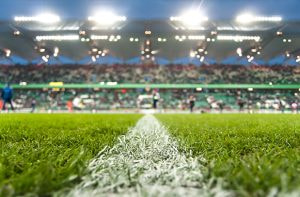Today, football is no longer a simple sport, it is one of the most sought-after business areas where increasingly powerful investors are trying to grab their shares. Therefore, new rules are needed to prevent its collapse and preserve its spirit.
Starting from environmental sustainability
Modern football is an increasingly rich and increasingly unequal money machine. On one side there are The great giants of European footballwhich generates revenue and generates staggering revenues, especially in the Premier League. On the other hand, small companies are increasingly forced to fight an uneven playing field, despite bringing home at least a highly affordable nest egg.
In short, the sustainability of football is an increasingly important issue for a sport that carries risks if radical changes are not made in the very short term. is becoming an increasingly private businessIt harms the universal nature of sports practices. It is also for this reason that there are many players on the field who have pondered strategic directives, from UEFA to FIFA, from national leagues (also Lega Serie A) and directly to the clubs. Causes a significant change of direction.

Paths to a more sustainable football
The hottest issues that need to be addressed on the path to sustainable football are well known, and UEFA decided to start from the most “political” part of the problem, the part connected to environmental sustainability. European football’s governing body has decided to join the United Nations Race to Zero campaign and has therefore made the following commitment: Reduce greenhouse gas emissions by 50% by 2030, then reach zero in 2040.
To achieve this goal UEFA will constantly monitor environmental impact All UEFA events such as the Champions League and Europa League that will take place in the 2023/24 season. Based on the data collected, it will develop a timeline for reducing emissions and will work with continental clubs and federations to ensure that respect for the environment has a priority place in the regulations of national championships.
The importance of this initiative is well represented by the very revealing number of emissions produced by the Serie A championship alone. If we take the last season, 2022/2023, as a reference, Italian football produced total emissions. Nearly 300 tons of waste. Plastic bottles make up the lion’s share of approximately 2 tons of garbage generated during matches.
And then there’s the energy issue. Moreover, due to the outdated conditions in which Italian sports facilities are located, stadiums today have a 20-game season, They consume over 1 million kilowatts of energy per yearthat is, the energy required to run the household of three thousand Italian families. When we look at the water distribution, the situation does not improve: In this case, consumption exceeds one hundred thousand cubic meters of water per year.
More sustainable football, from commissions to salary cap
Another decisive factor for building sustainable and fairer football is supervision of prosecutors and commissionsTwo factors that slowly wear down clubs and risk causing clubs with limited financial resources to go bankrupt.
Prosecutors took money from clubs in 2023, according to FIFA data Commission amounting to approximately 815 million eurosThis is a huge growth compared to 600 million in 2022, making it the fifth record in a row. Clubs have long been demanding significant interventions from FIFA and UEFA regarding managers and relevant commissions, but little has been done.
Recommendations that will guarantee greater sustainability of football are, first of all,Applying maximum ceilings on commissions What agencies, intermediaries and lawyers can receive in transfers. Today these commissions reach more than 10% of the player’s value, a fair percentage should be around 5%.
A ceiling of around 3% should also be set for the commissions that managers receive from players’ contracts. Today, this rate sometimes approaches 10% in transfers. On the other hand, this opportunity can also be opened to agencies in order not to disappoint anyone. Collect percentages from foreign agreements as well To sports contracts such as image rights or sponsorships.
Lastly it will be important quickly create a commission recordor, in any case, the mandatory communication of percentages received by managers to all football governing bodies, from Fifa to UEFA and national associations.



